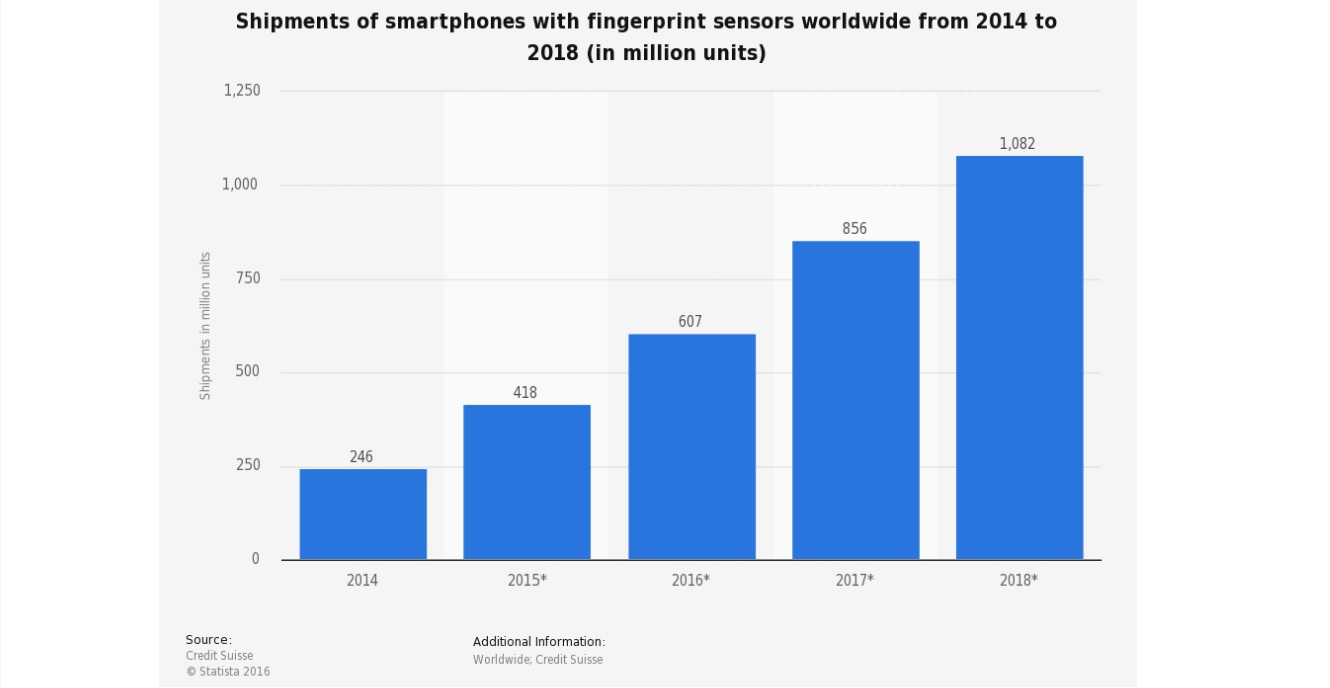
Credit: Statista
Amid all the arguing about encryption and lock codes that came with the recent fight between Apple and the FBI, it seems everyone forgot about one very important loophole that exists for law enforcement: fingerprint locks.
According to Bloomberg, unlike passcodes, fingerprint lock systems aren’t “cop-proof.”
While cracking passcodes – or compelling a defendant to provide one – can be an issue, Bloomberg found all it takes to crack a fingerprint lock is a warrant for the suspect’s fingerprints. Issued with a judge’s permission, the warrant allows police to force suspects to unlock a device with their finger.
No precedent has yet been set by higher courts, but a 2014 decision from a case in Virginia cited by Bloomberg shows how the logic behind this loophole plays out.
In the case of David Baust, the court ruled investigators could not force him to provide his passcode for the device but could compel him to provide his fingerprint to access the device. The judge said the latter type of key “does not require the witness to divulge anything through his mental processes,” and was therefore not subject to the Baust’s Fifth Amendment right to avoid self-incrimination.
Given the current relationship between the tech industry and law enforcement, it’s only a matter of time before this rarely used work around becomes a major exploit.
According to a January report from Credit Suisse, 246 million smartphones with fingerprint sensors were shipped worldwide in 2014. That figure is expected to more than quadruple to 1.08 billion in 2018, amounting to a penetration rate of 67 percent.
Samsung and Apple, the dominant smartphone vendors in the U.S., are expected to account for a large portion of these shipments, Credit Suisse said.
Apple, which introduced its Touch ID technology in 2013, shipped 175 million iPhones with fingerprint sensors worldwide in 2014. By 2018, the company is expected to ship 245 million smartphones with fingerprint sensors.
Samsung, the leading global smartphone vendor, shipped just 45 million smartphones with fingerprint sensors in 2014, but is expected to grow that figure to 228 million by 2018.




